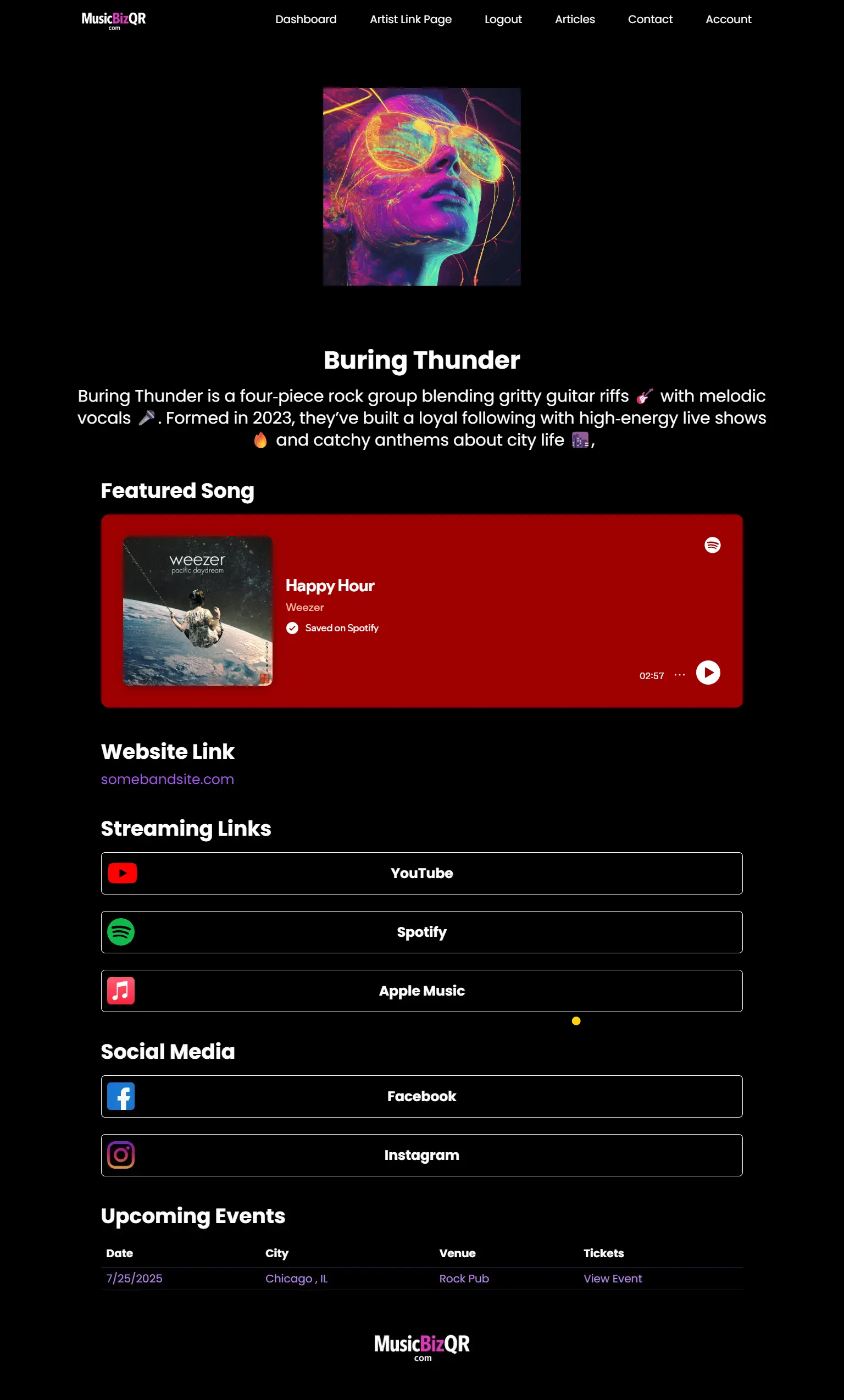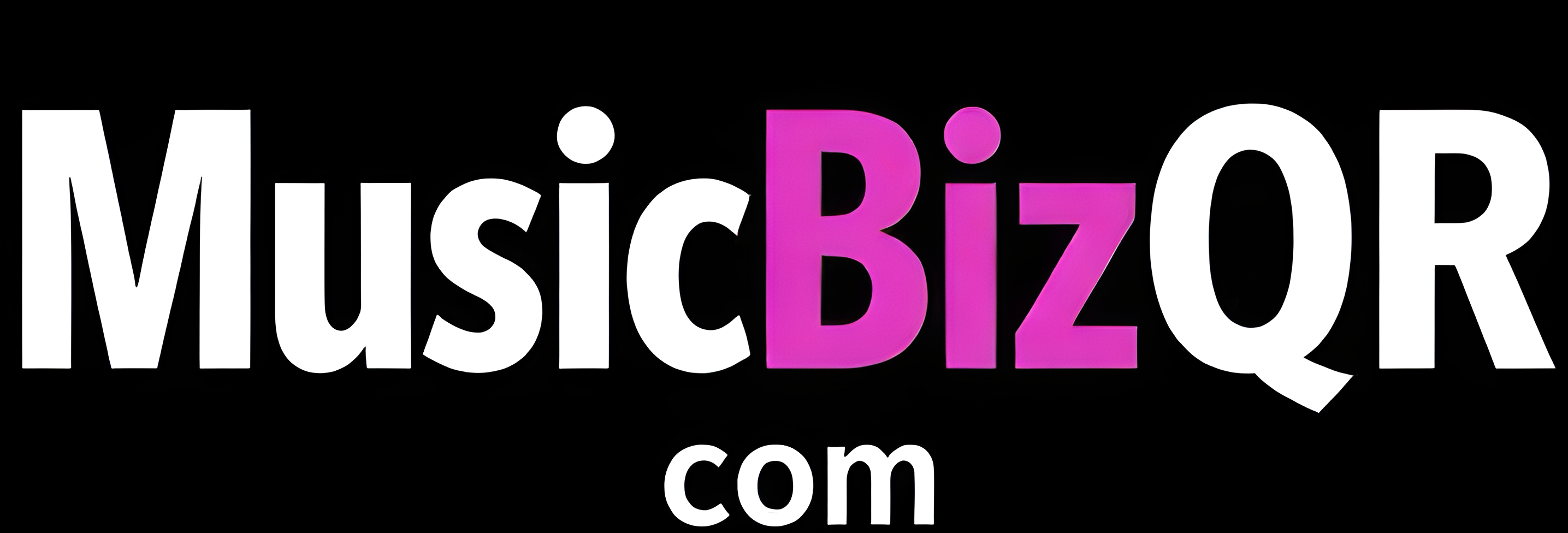QR Codes and the Evolution of the Gig Economy
The gig economy, once synonymous with food delivery and ridesharing, is rapidly becoming the defining frontier of the independent music scene. At the heart of this transformation? QR codes.
Once mocked as relics of early smartphone marketing, QR codes have surged back into cultural relevance—this time not as novelty, but as the backbone of a direct-to-fan revolution.
The Street Is the Stage Again
A few decades ago, gigging musicians relied on word-of-mouth, stapled flyers, and the occasional chance radio spin to draw a crowd. Today, the hustle looks different. You might find a singer-songwriter on a street corner in Nashville or Berlin with a guitar case open, a small amp buzzing—and a QR code taped front and center.
Scan the code and you're not just taken to a homepage. You're launched into a curated world: music, tour dates, merch, digital tipping, even an AR experience that pops a virtual performance into your phone. The artist becomes not just a sound, but a brand, a story, and a movement.
Why QR Codes Work So Well for Musicians
What makes QR codes such a perfect fit for gigging artists?
First, they're frictionless. A passing listener doesn’t need to remember your Instagram handle or ask what streaming service you’re on. They just scan.
Second, they’re highly flexible. A single QR code can route to a smart link that adapts to context—mobile vs. desktop, fan vs. promoter, subscriber vs. first-time listener. You're not handing out business cards anymore; you're delivering custom digital experiences in real time.
Third, they scale with you. Whether you're playing your first open mic or headlining a regional tour, QR codes grow as your strategy does.
Cutting Out the Middleman
QR code strategies aren't just about convenience. They’re about sovereignty.
In an industry where 80% of streaming revenue can be siphoned off before it ever reaches the artist, QR-driven tools return power to the creator. Sell merch directly. Collect emails without algorithms. Accept tips instantly. Promote your latest single without paying for ad space.
This isn't just evolution—it's economic rebellion. The indie artist isn't looking for a label anymore. They're building their own machine.
Monetizing the Moment
The gig economy thrives on immediacy. You play, they pay. You move, they follow. But every passing moment is an opportunity lost if there’s no clear call to action. QR codes solve that.
At a festival? Set up a QR sign next to your set list. Playing in a bar? Project it behind you with a short message: "Like what you hear? Tap into more." Even a scanned code on a sticker can become the beginning of a loyal fan journey.
You’re not waiting to be discovered. You’re inviting fans into your world—on their terms, instantly.
Fan Engagement Without the Platform Tax
Social media platforms and streaming services have their place—but they all come with a price. Organic reach is throttled. Fan data is hidden. Monetization is filtered through layers of policy and commission fees.
QR codes let artists engage directly. Want to build a mailing list? Link to a signup page. Want feedback on a new track? Drop a private YouTube link. Want to offer VIP access to your next show? Gate it behind a scan.
These are not just tactics—they're freedom moves.
The New Gig Toolkit
Here’s the truth: in today’s gig economy, the artist’s toolkit needs to be as mobile and modular as they are. You’re not building a fanbase anymore. You’re building an ecosystem.
And in that ecosystem, QR codes are the access point. Not because they’re trendy, but because they work.
When paired with tools like MusicBizQR, artists gain the ability to manage dynamic smart links, embed streaming music, track analytics, and offer immersive fan experiences—all tied to a single scannable symbol.
Final Thoughts
The gig economy is no longer a side hustle—it’s the main stage for a growing army of independent creators. And in this landscape, QR codes aren't gimmicks. They’re passports.
The street. The venue. The feed. The living room. Wherever a fan meets an artist, a QR code bridges the gap between a fleeting performance and a lasting connection.
Welcome to the new economy. You don’t need permission to join. Just a song, a strategy, and a scan.
Built for Musicians. Powered by Smart Links.
MusicBizQR gives you a powerful landing page with streaming links, videos, social buttons, and real-time fan analytics — all from a single QR code.
- 🎯 Unlimited link clicks & analytics
- 📈 Track Spotify streams, YouTube plays, and QR scans
- 📱 Mobile-optimized artist pages
- 🚀 Create your first Smart Link in seconds

Related Posts
Discover the art and science of crafting QR codes that scan flawlessly every time—from sizing and contrast to placement and branding. This in‑depth guide walks musicians through each step with real‑world stories and expert tips.
Discover how bands can use QR code marketing to grow their fanbase, boost engagement, and increase revenue with real-world strategies and examples.
Get more scans at shows. Exact sizes, contrast, distances, and placements for QR codes on posters, stage screens, and merch—battle-tested.
Dynamic QR codes let artists edit links, track scans, and grow fan funnels—without reprinting. Here’s why every musician should use them (and how).
Learn how indie bands can boost merch sales at live shows using QR codes. Engage fans, simplify purchases, and track what works—all with MusicBizQR.
Discover how QR codes are helping musicians grow their audience, boost engagement, and drive merch and ticket sales in 2025.
Learn how musicians are using QR codes to collect email addresses from fans during concerts and tours. Build your fanbase with smarter tech.
Discover how artists are using QR codes at live shows to turn fleeting moments into lasting fan relationships and revenue.
Learn how musicians use QR codes to grow fans, sell merch, promote tours, and build owned audiences in 2026. A complete, modern QR code strategy guide.
Discover how musicians are using QR codes to grow their fanbase, sell more merch, and promote shows. Learn why QR is the most underrated tool in music marketing.
Discover how to craft landing pages that turn every QR code scan into streams, signups, or sales. Learn narrative‑driven best practices, real‑world examples, and pro tips for mobile‑first experiences that engage and convert.
Discover how a thoughtful QR strategy can transform fan engagement, drive traffic to your music, and unlock new revenue streams for independent artists. Learn best practices and real‐world examples to build your own QR roadmap.
Discover how musicians are using QR codes to turn festival sets and tour stops into major fan growth engines. Real-world tactics that convert.
Learn how musicians can use QR codes at live shows to drive fan engagement, stream growth, and merch sales. Step-by-step tactics that actually work.
Discover the story of how an unknown indie band used QR codes and smart fan engagement to grow their audience and turn local shows into viral momentum.
Discover how QR codes are helping artists grow their fanbase, boost streams, and drive merch and ticket sales. Learn how to use QR codes to build your music career.
Discover how QR codes are revolutionizing music marketing, empowering bands and artists to engage fans, drive streams, and increase revenue.
Learn how QR codes are revolutionizing music discovery, making it easier for fans to connect instantly with new bands, content, and experiences.
How QR Codes Are Redefining Music Promotion for Indie Artists
Explore how QR codes are transforming the music industry's gig economy by empowering independent artists to connect, monetize, and grow without middlemen.
Discover how musicians are using QR codes at live shows to build long-term fan relationships. Learn proven strategies that turn casual listeners into superfans.
Learn how to design and deploy a high-converting QR code campaign for your next album drop. Includes tips on branding, analytics, and maximizing engagement.
Learn how indie musicians can use QR codes strategically to generate income, boost merch sales, and create lasting connections with fans.
Discover how bands can turn every live show into a powerful fan engagement moment using QR codes. Learn tactics that convert concertgoers into lifelong fans.
Discover how bands and solo artists can use QR codes to supercharge tour promotion, grow their fanbase, and drive ticket sales with ease.
